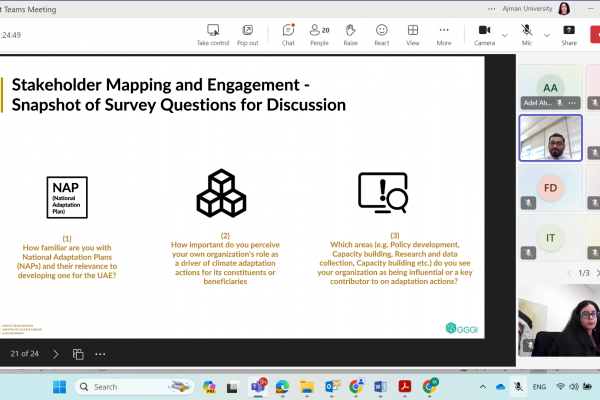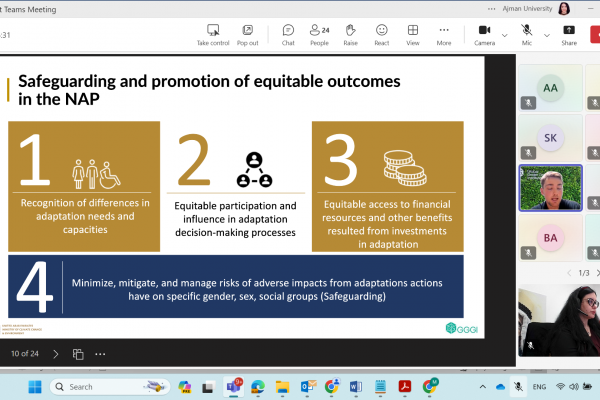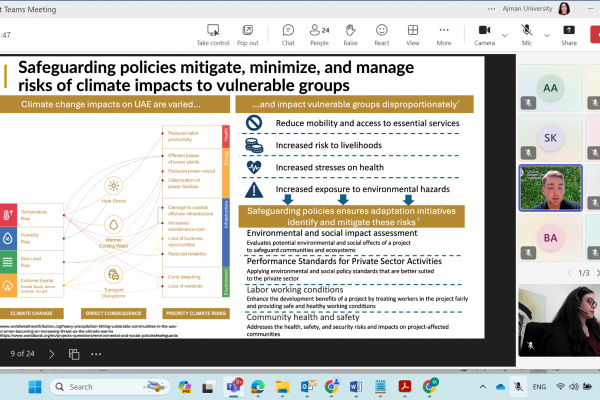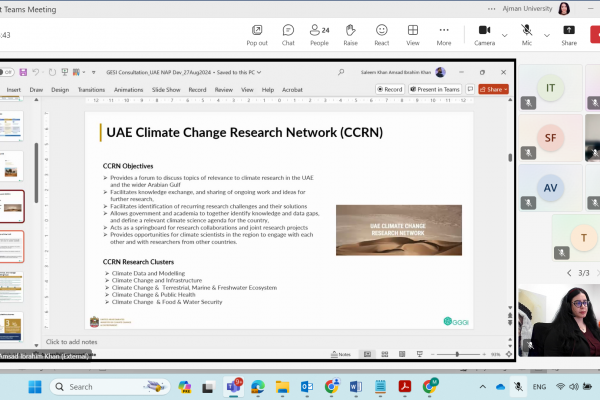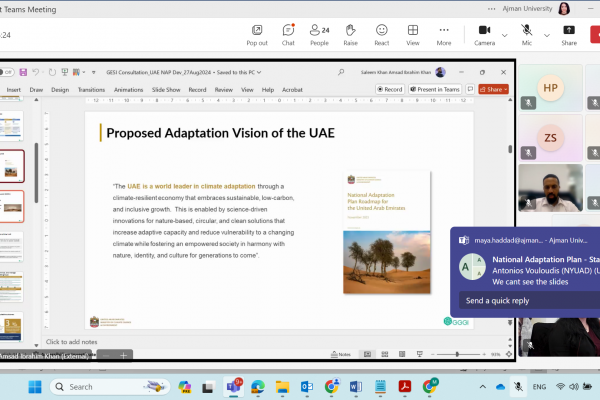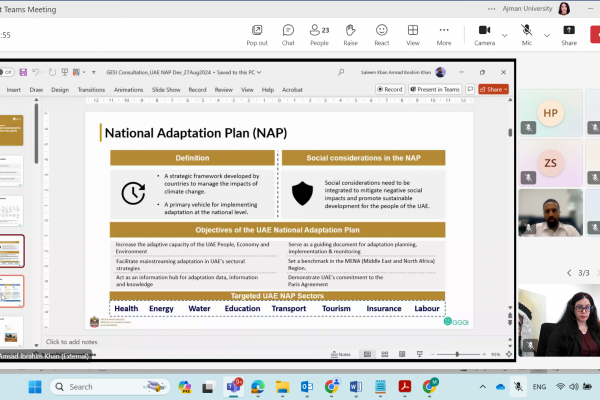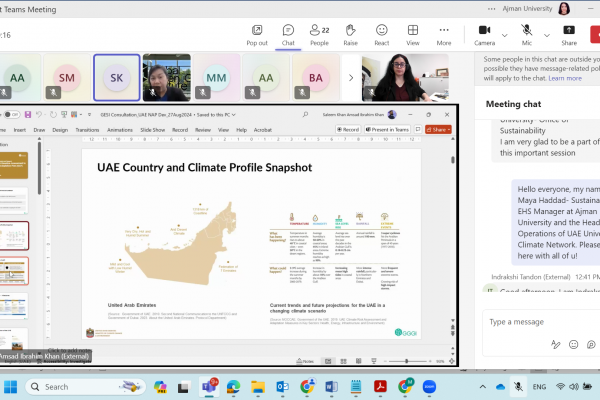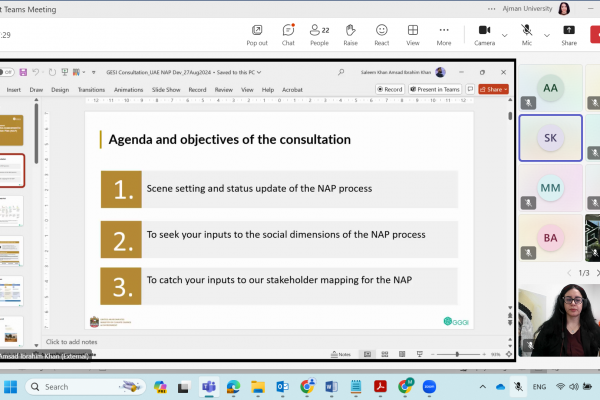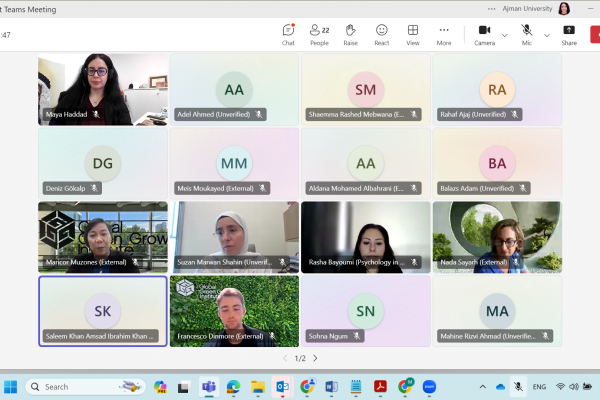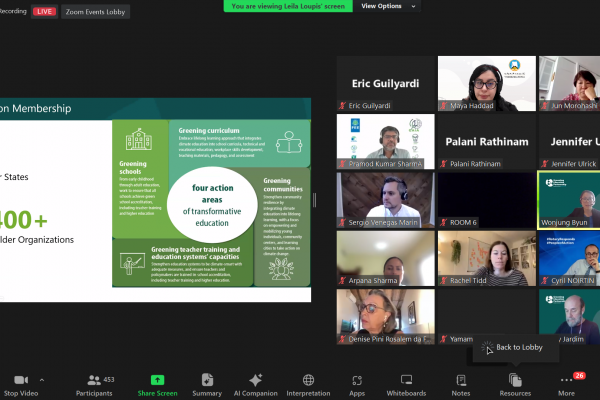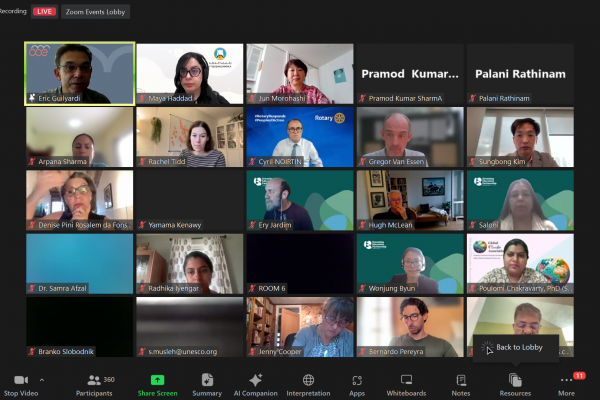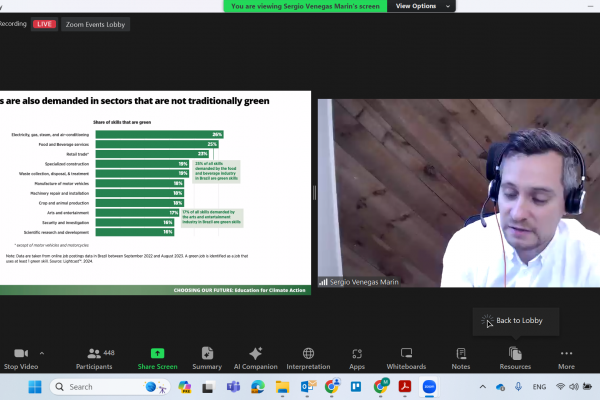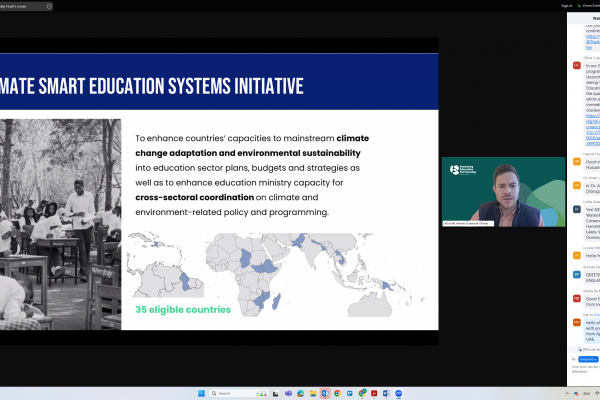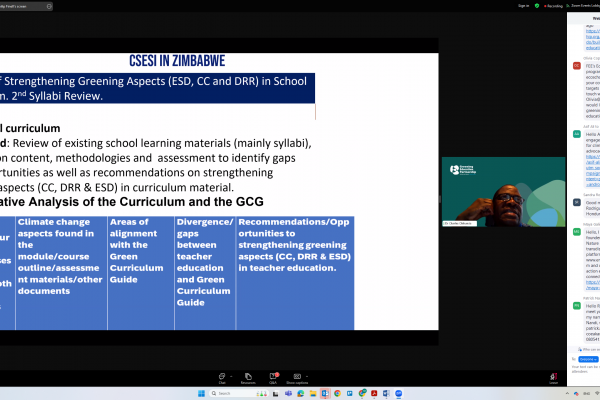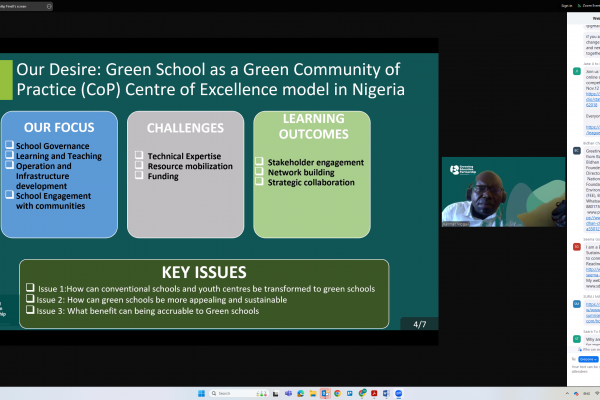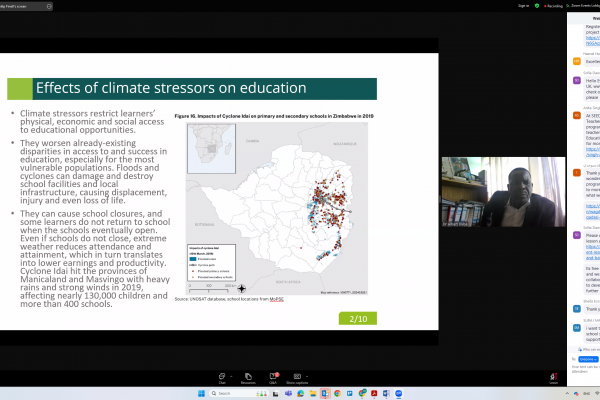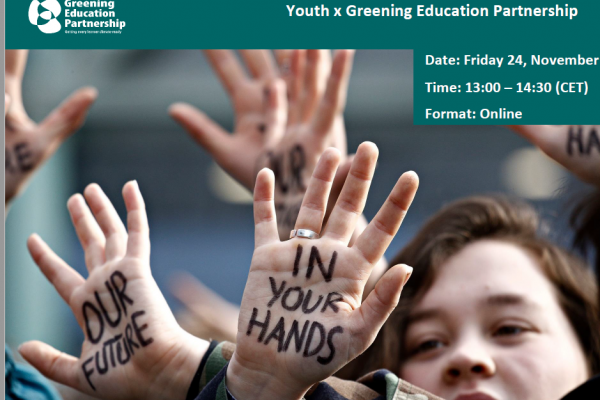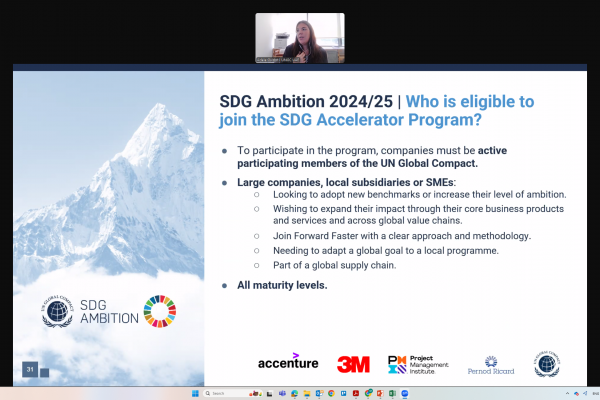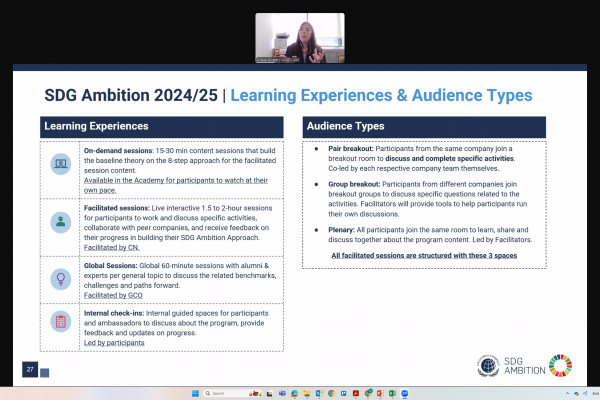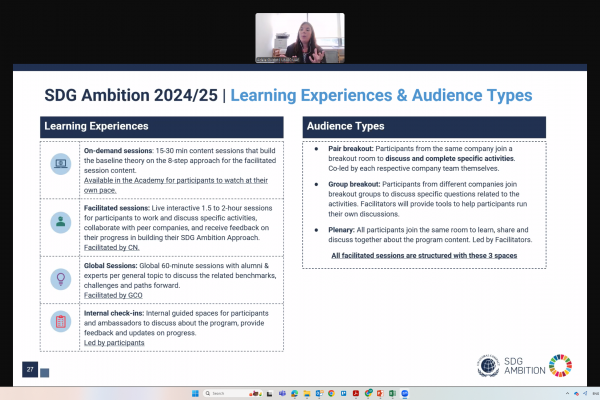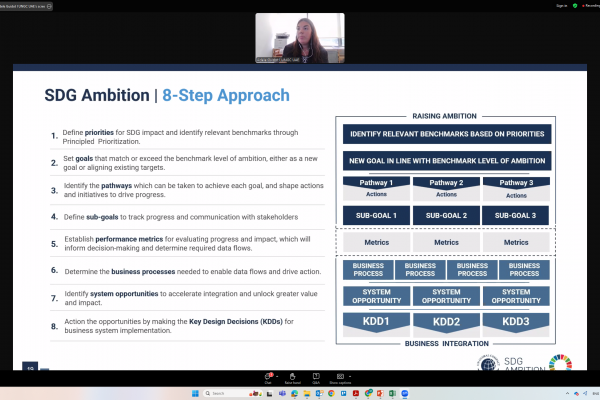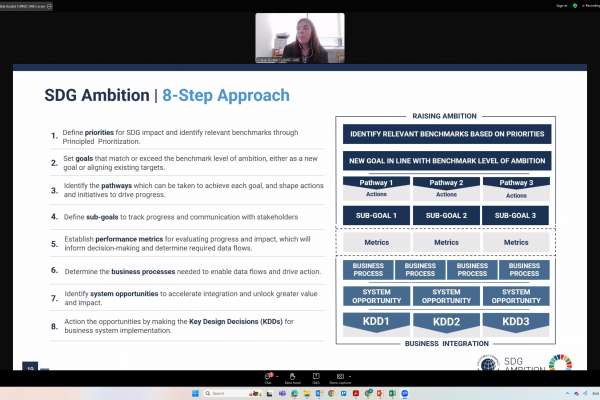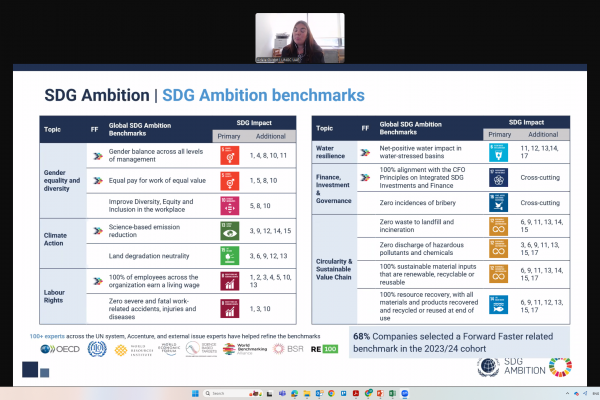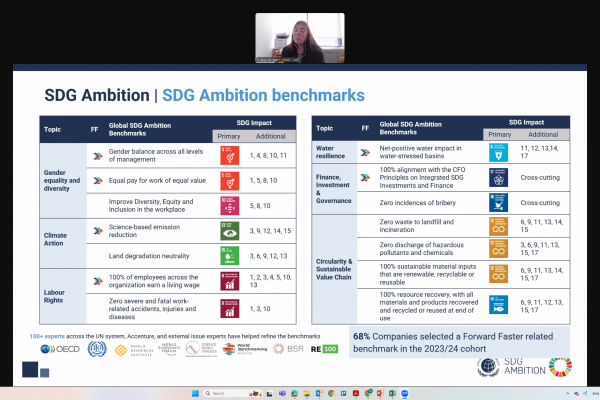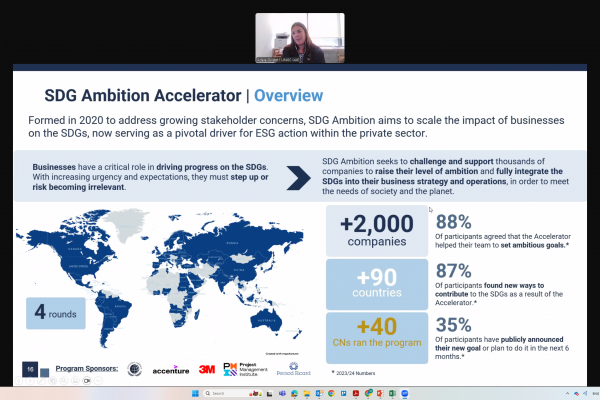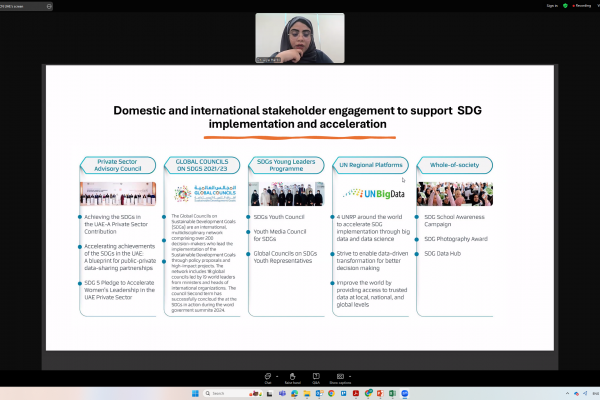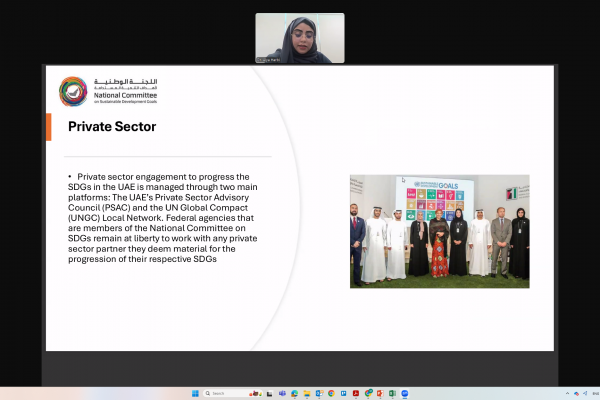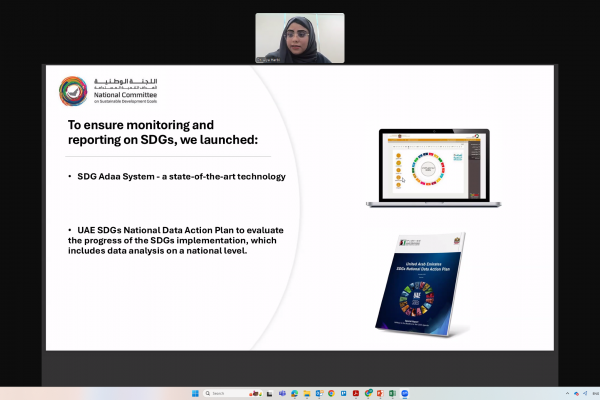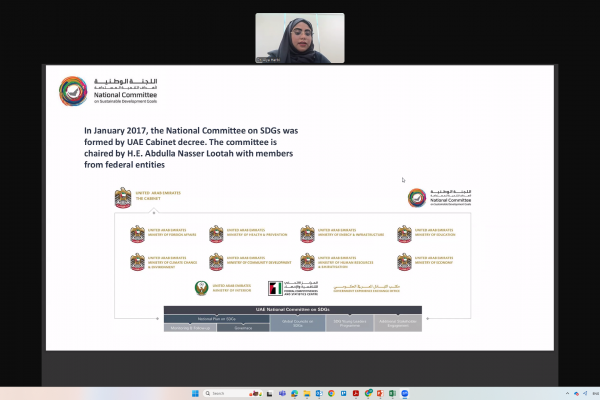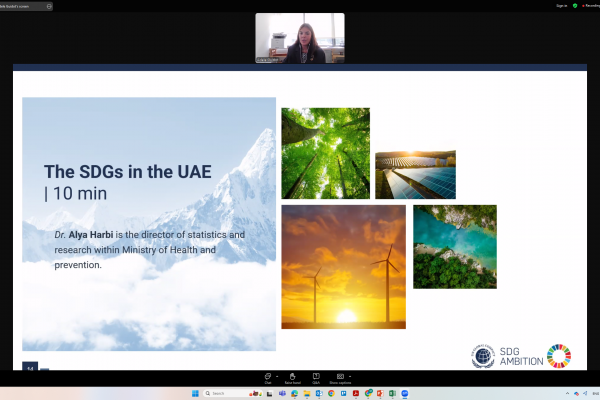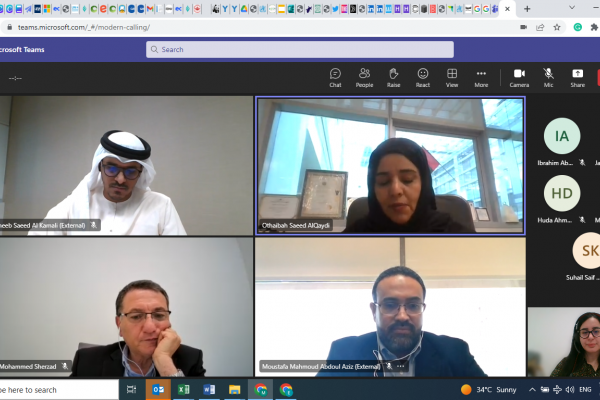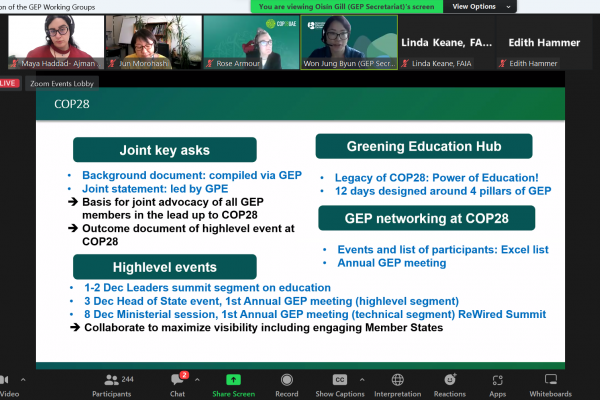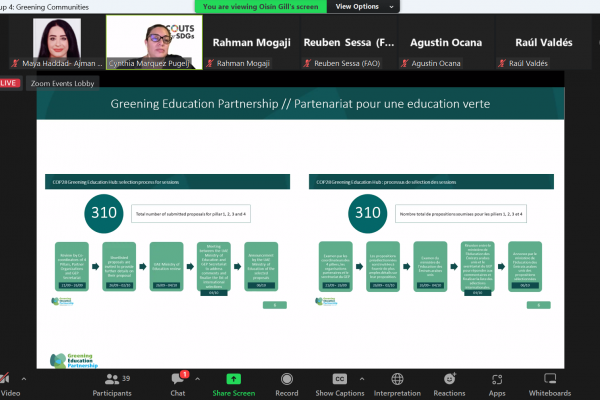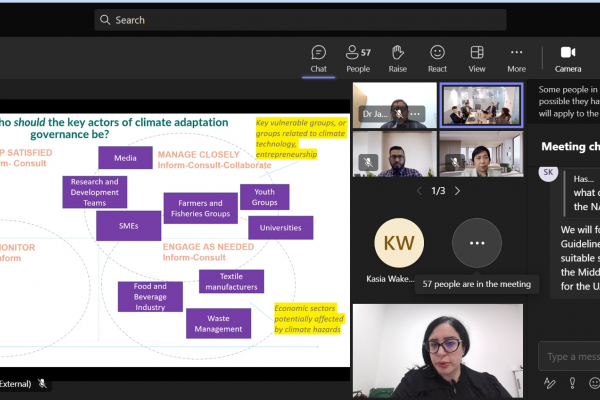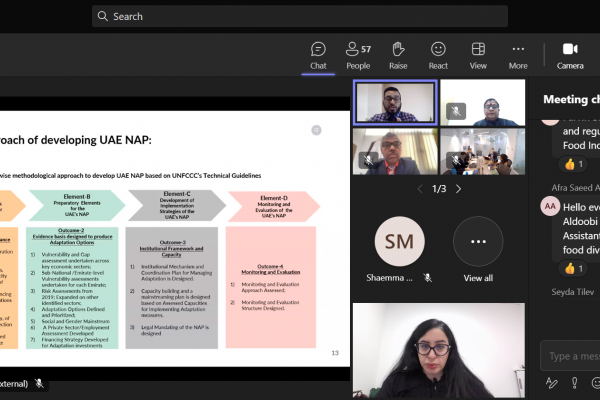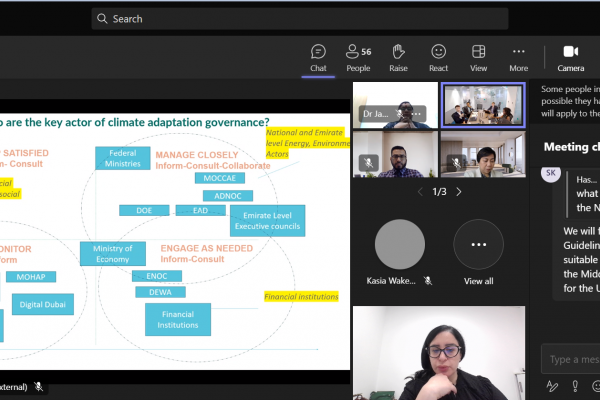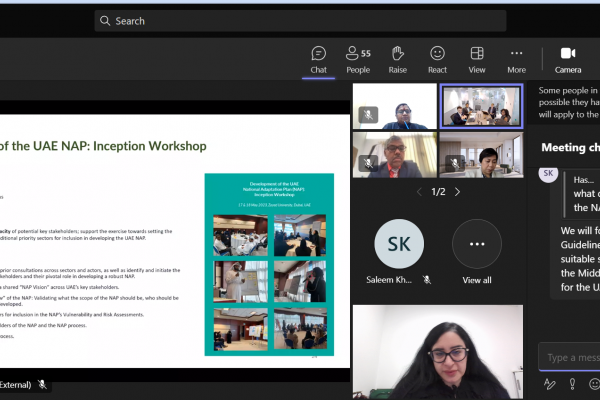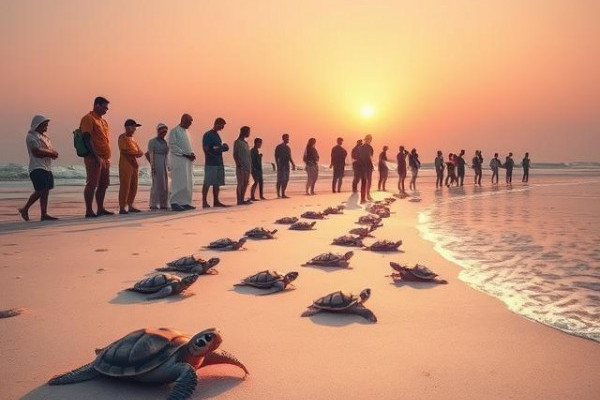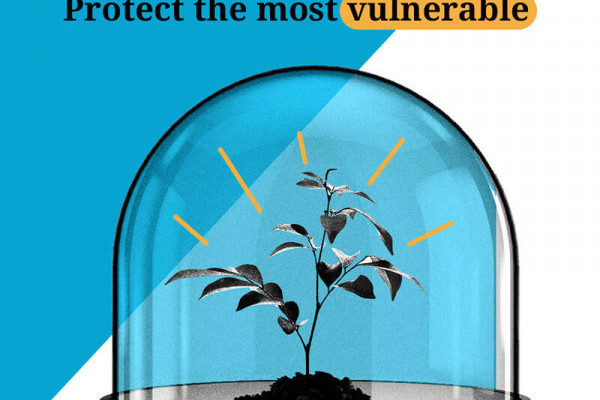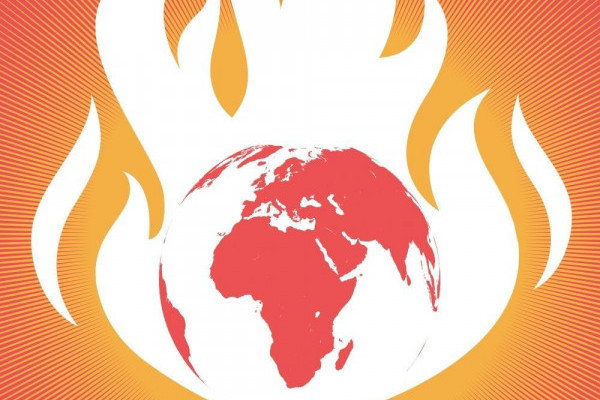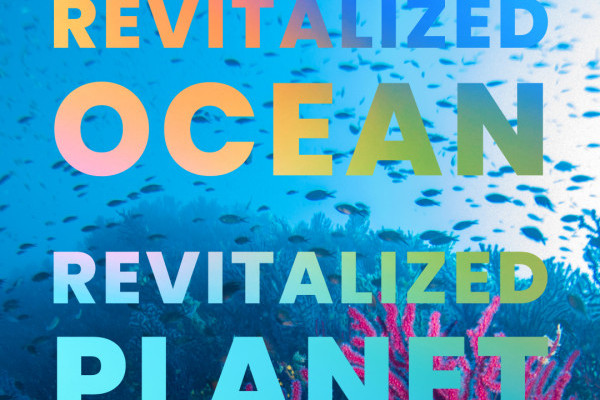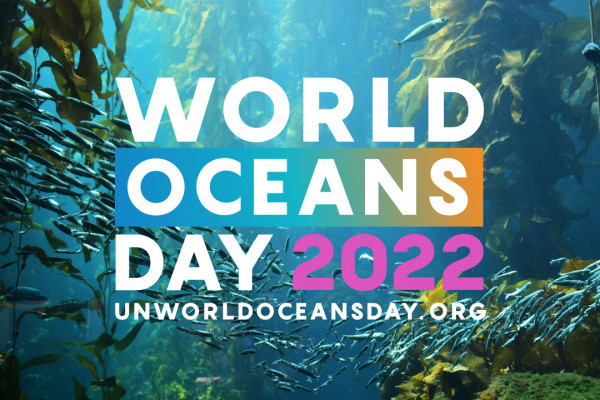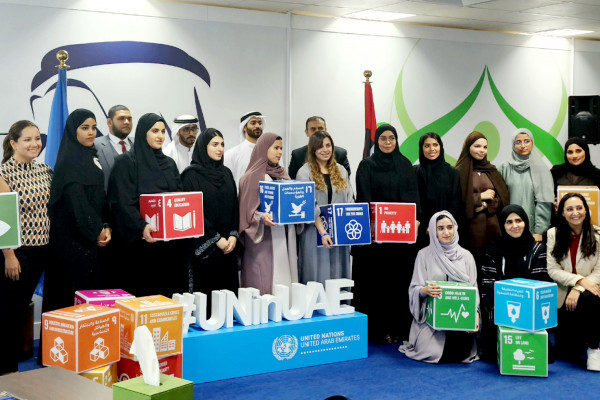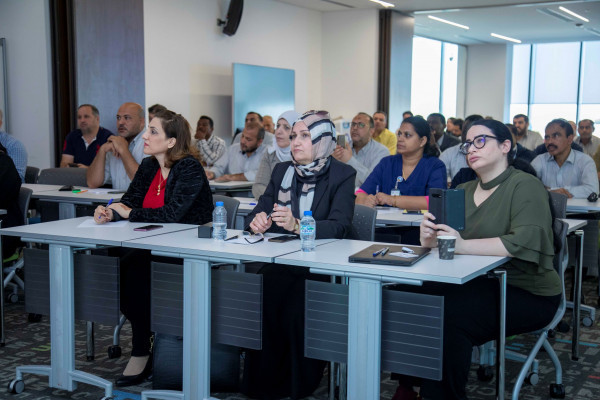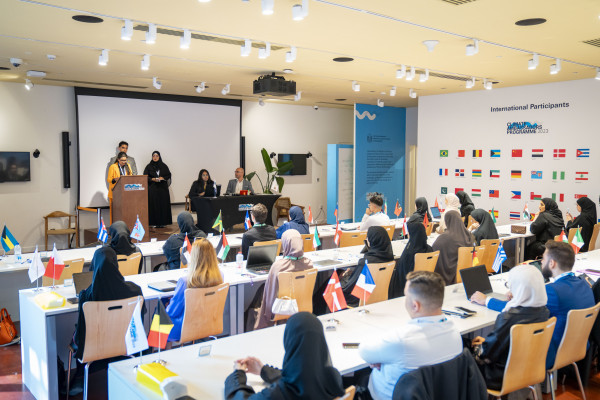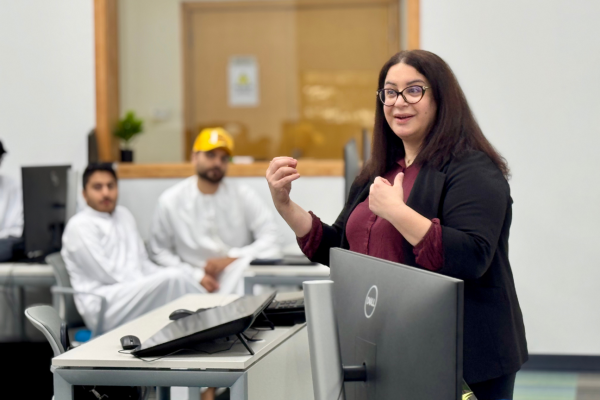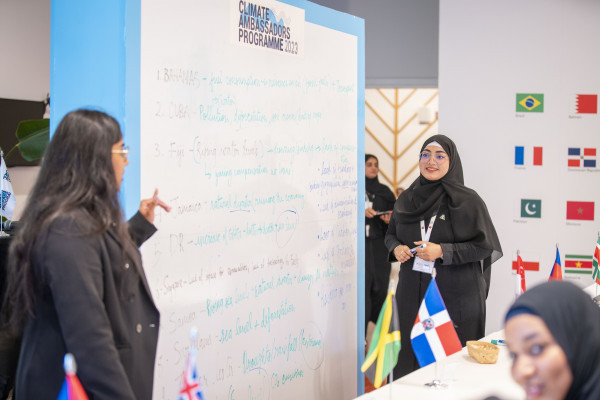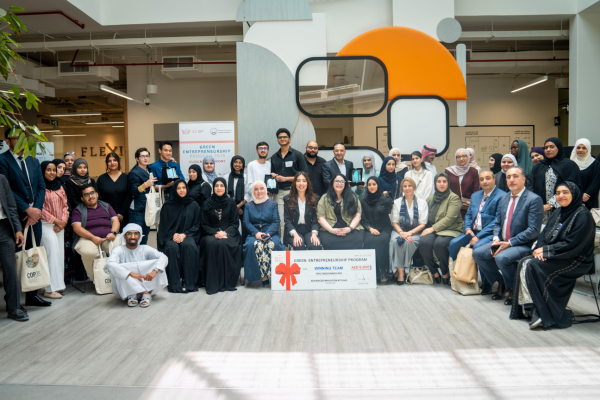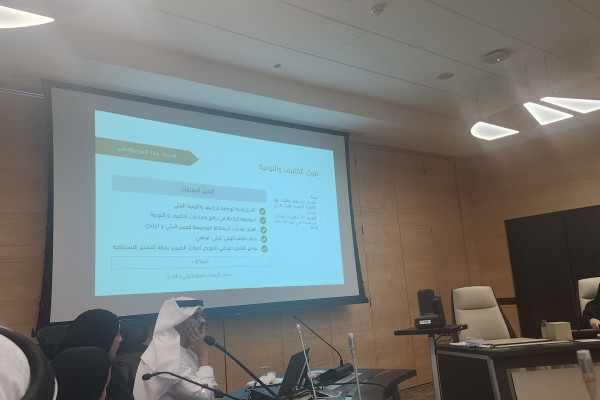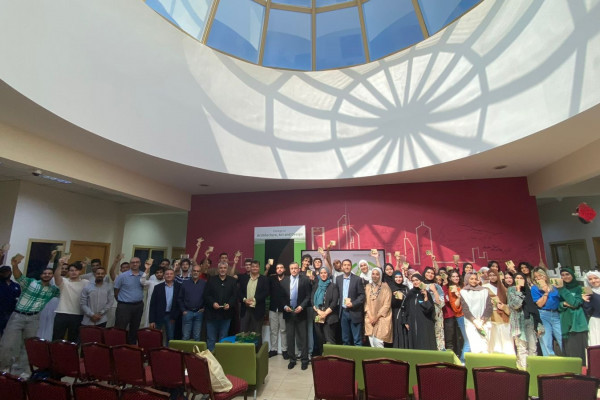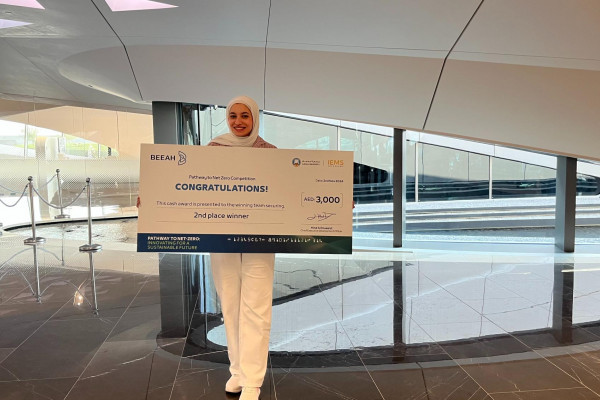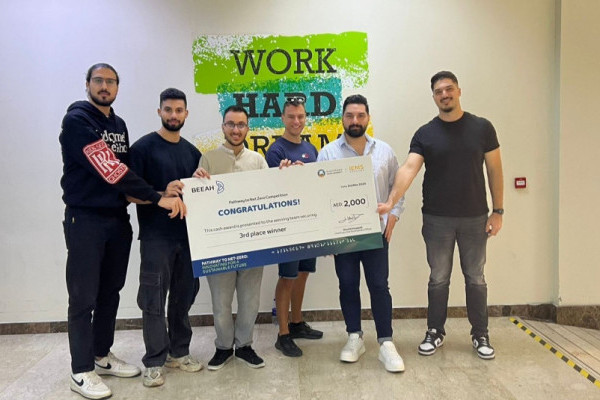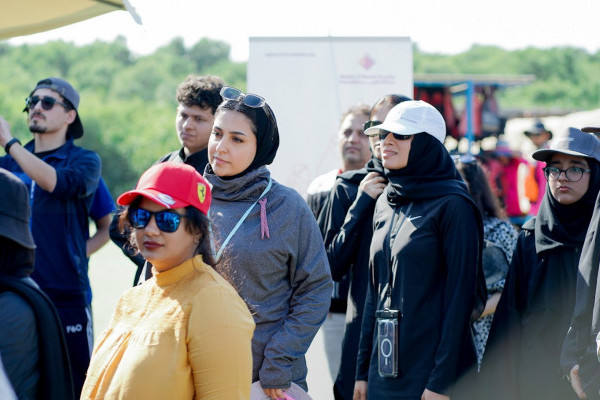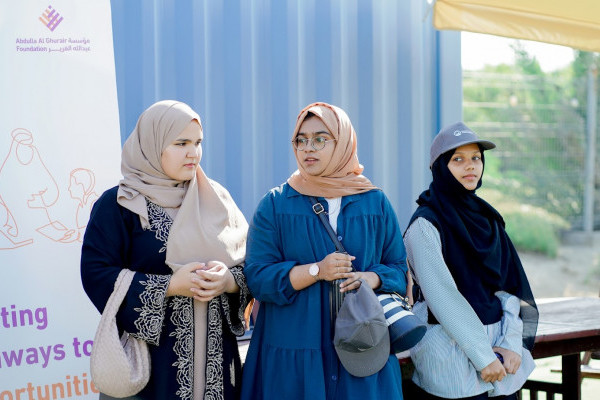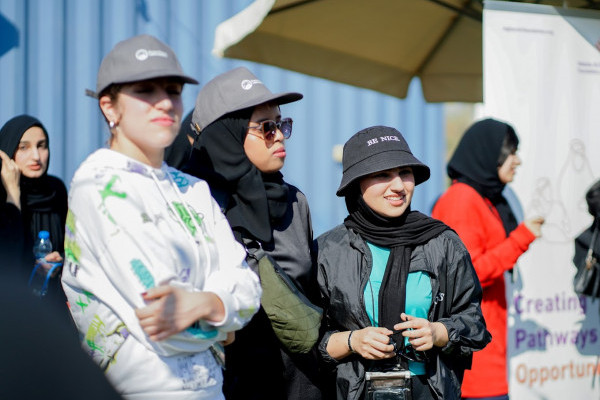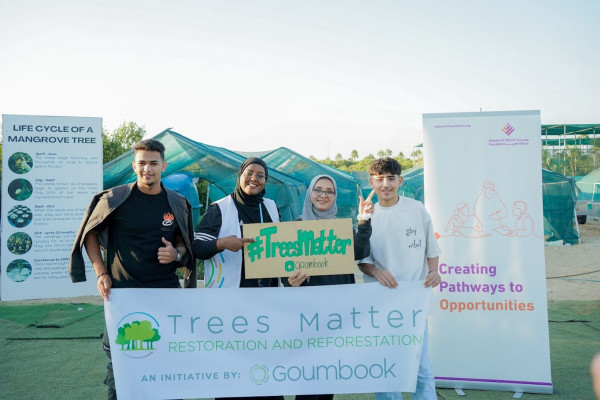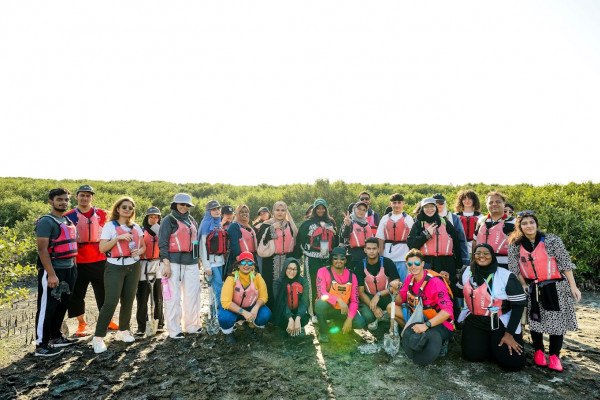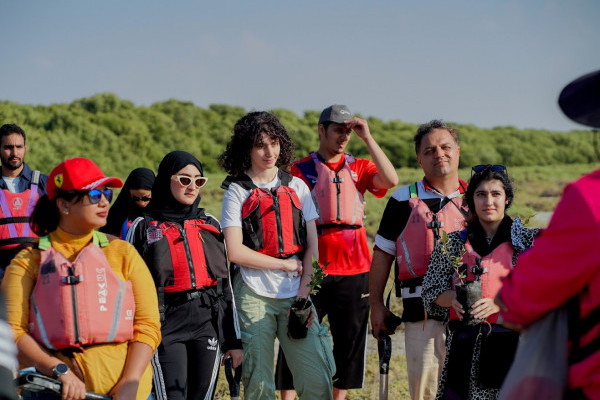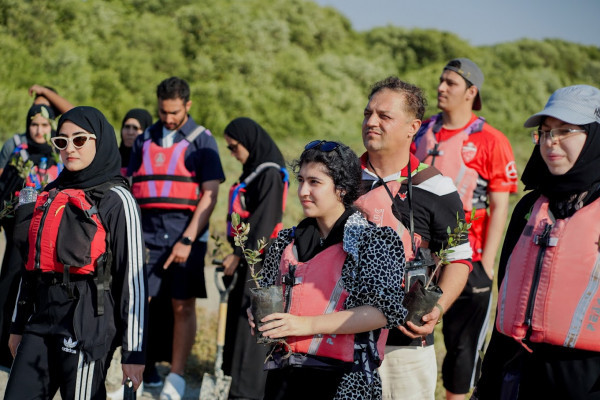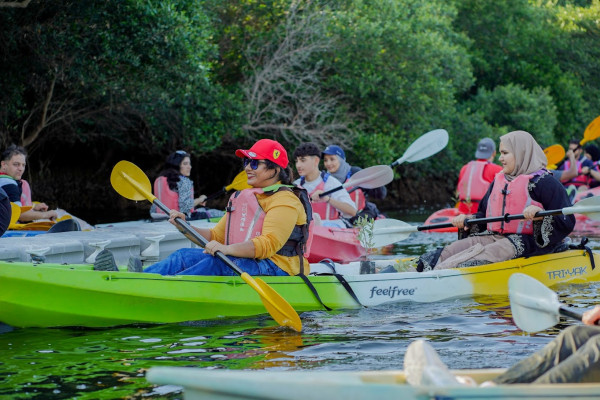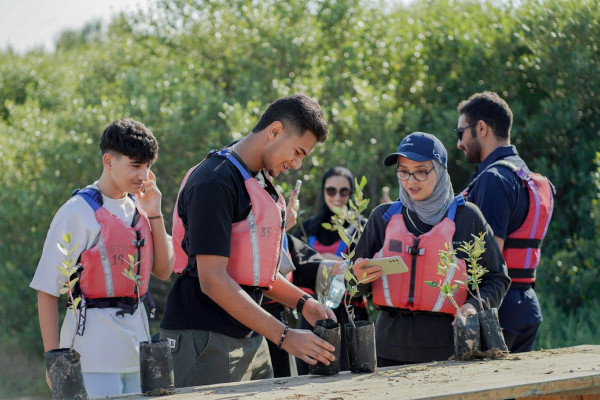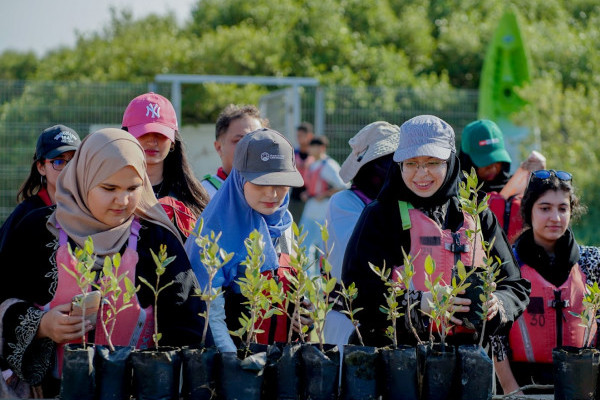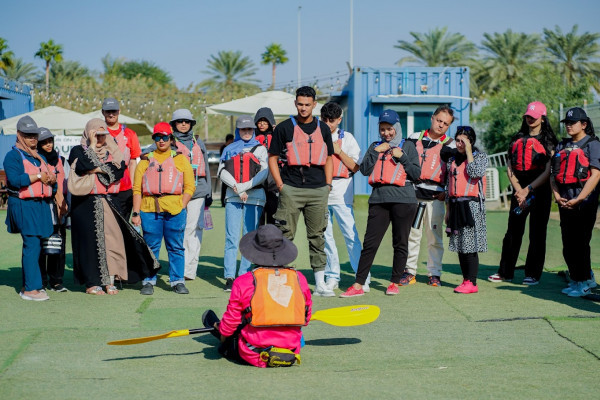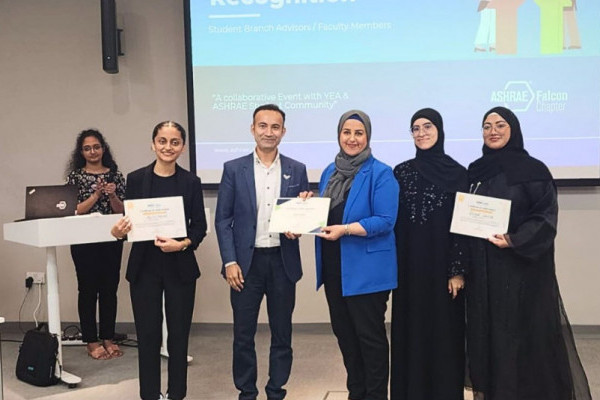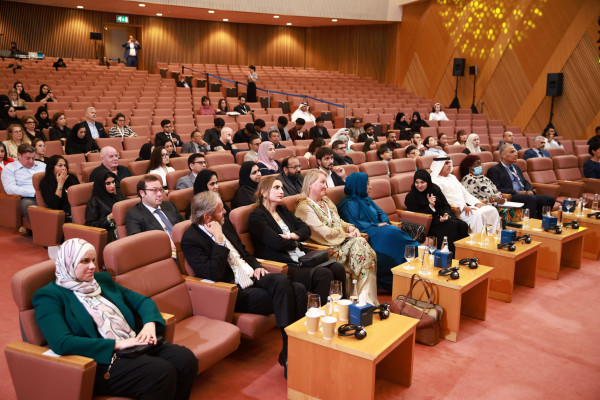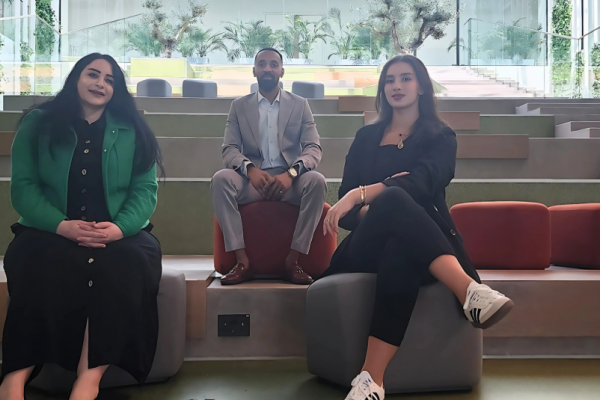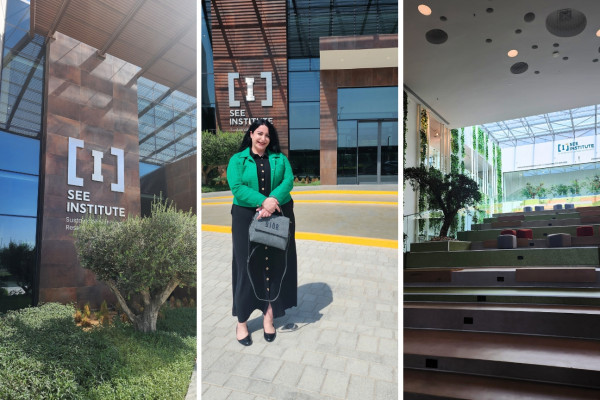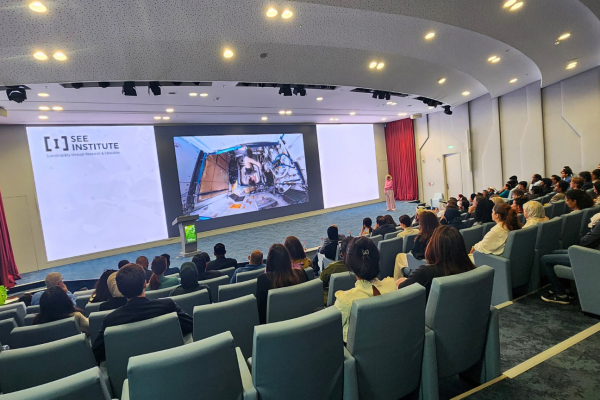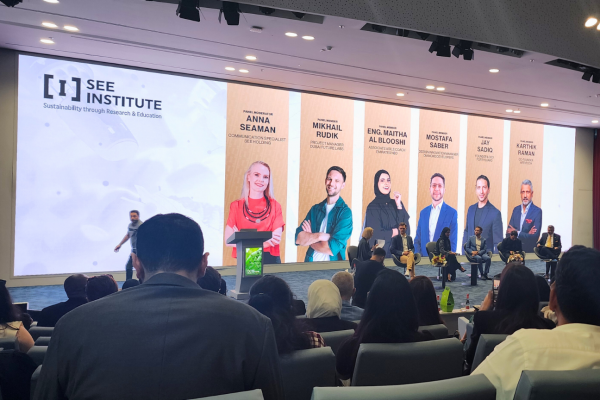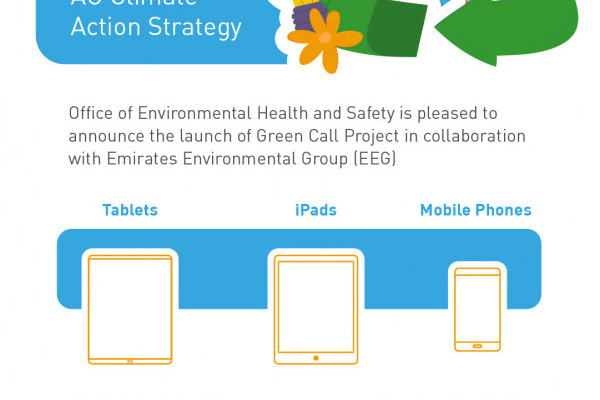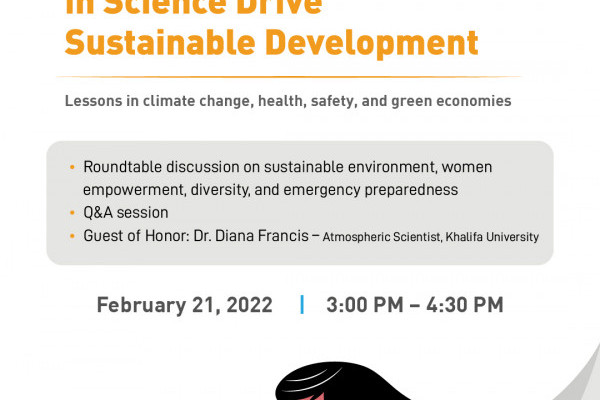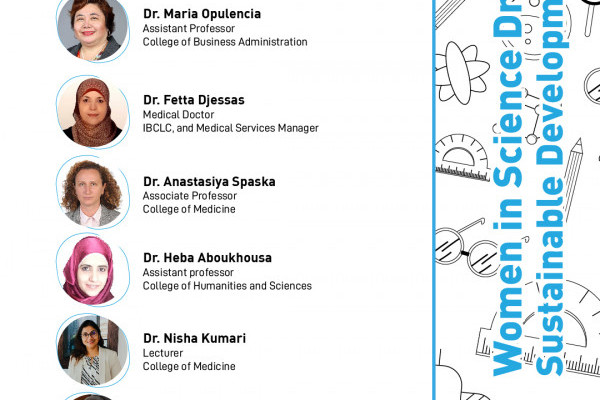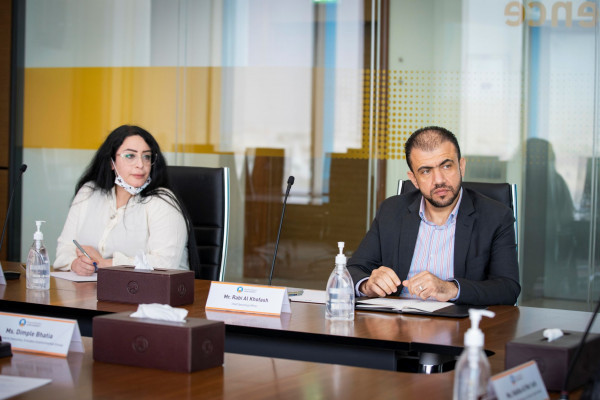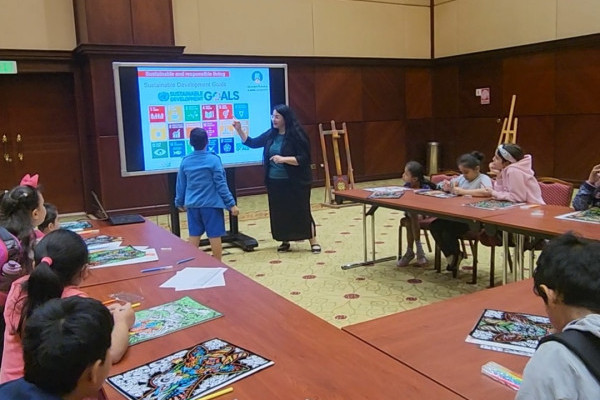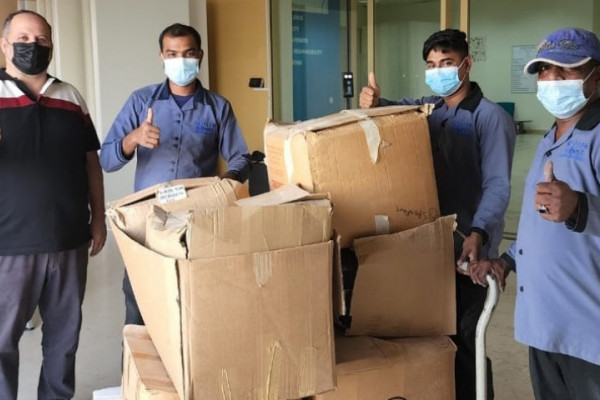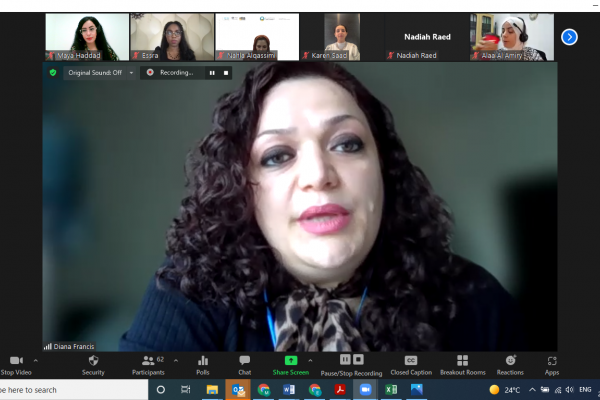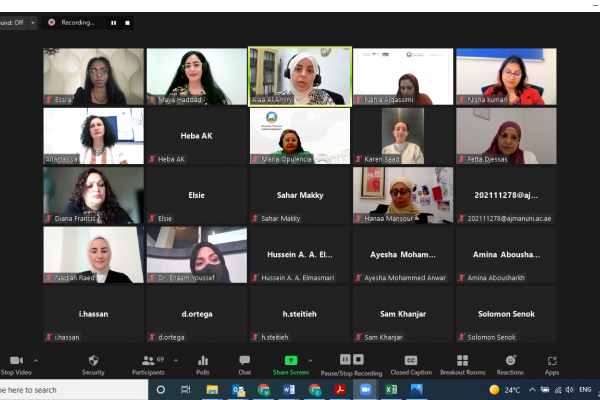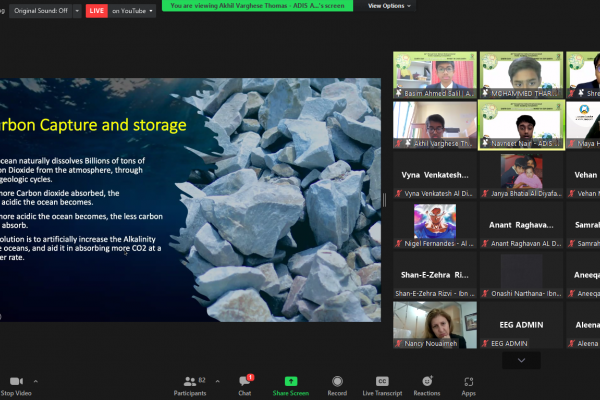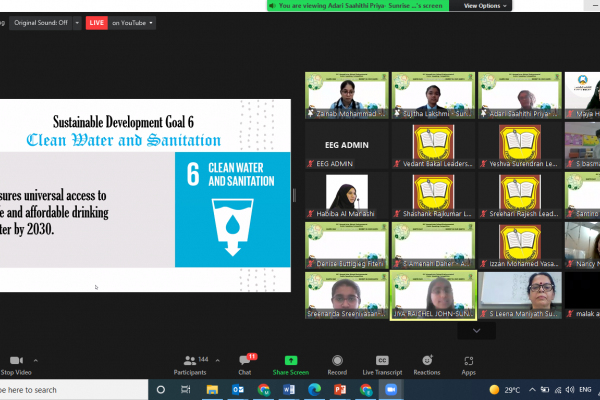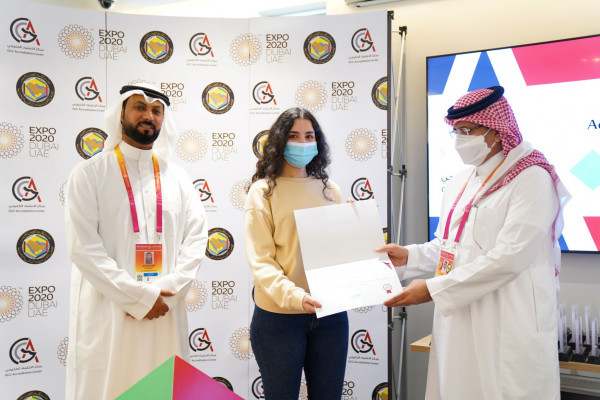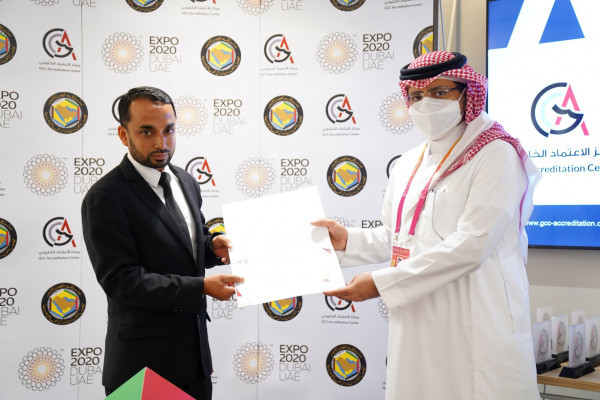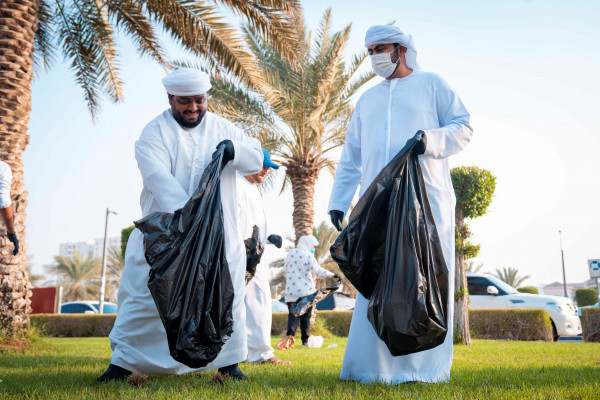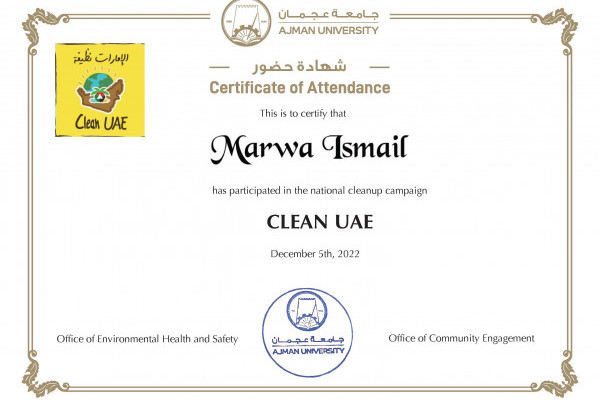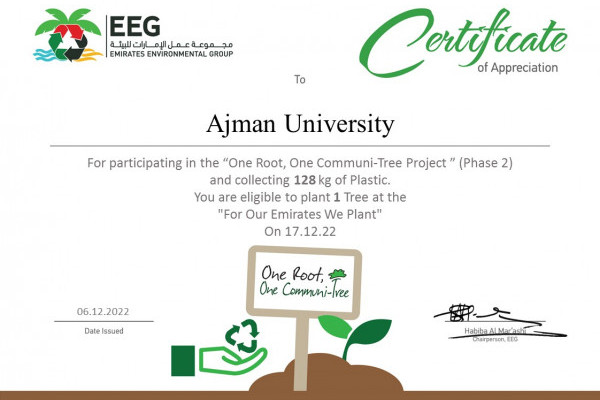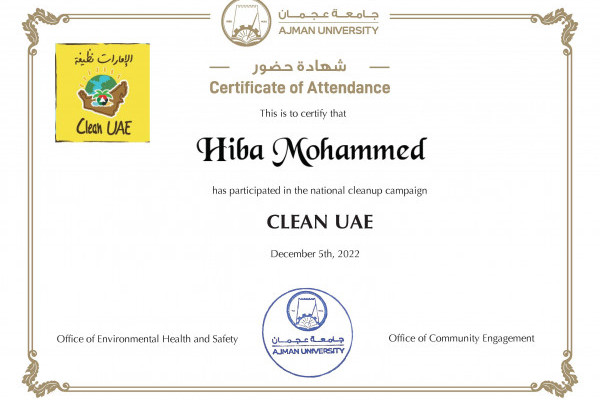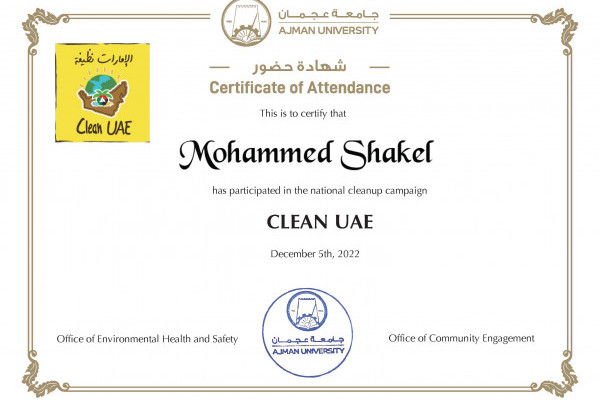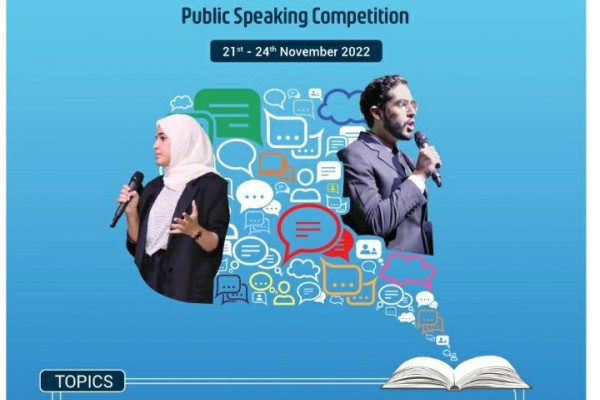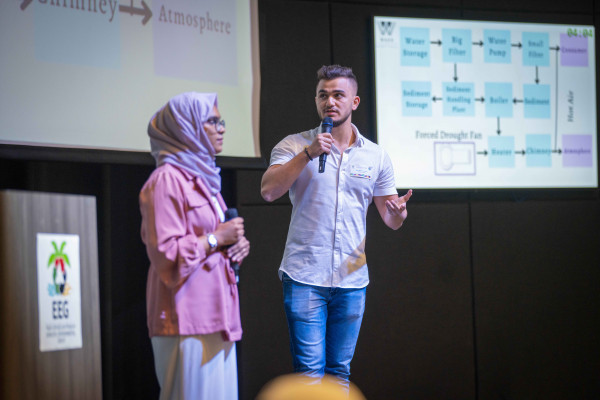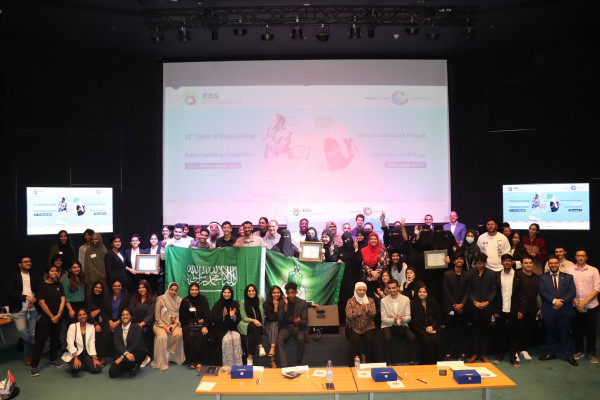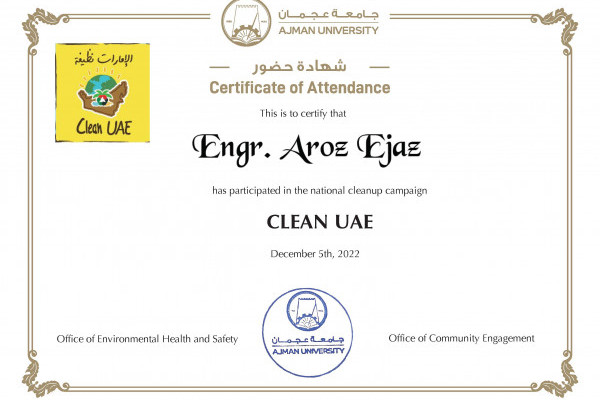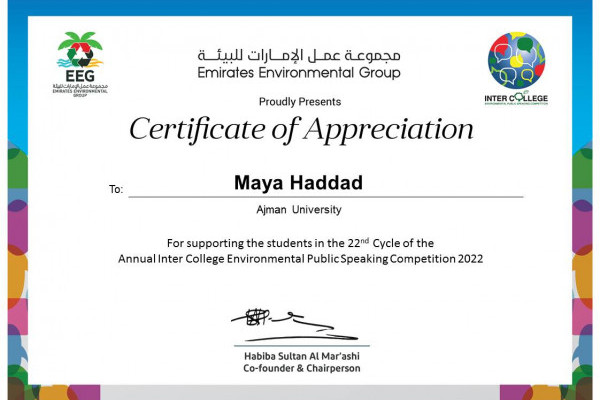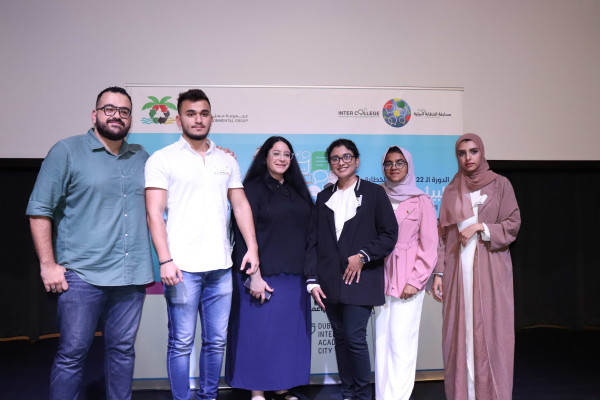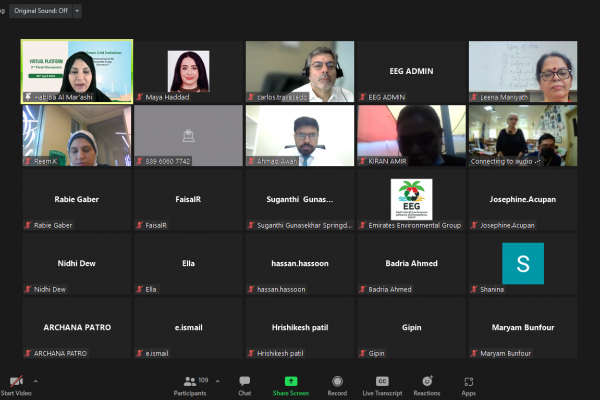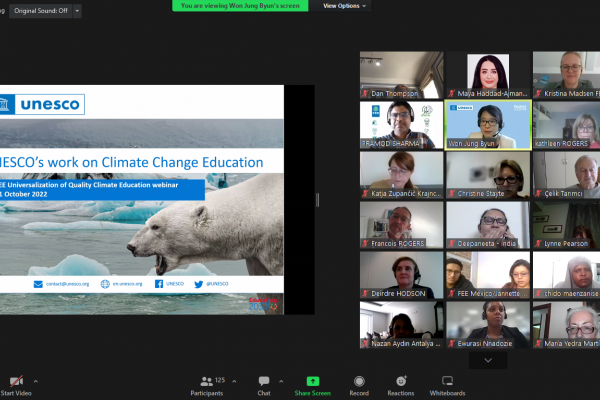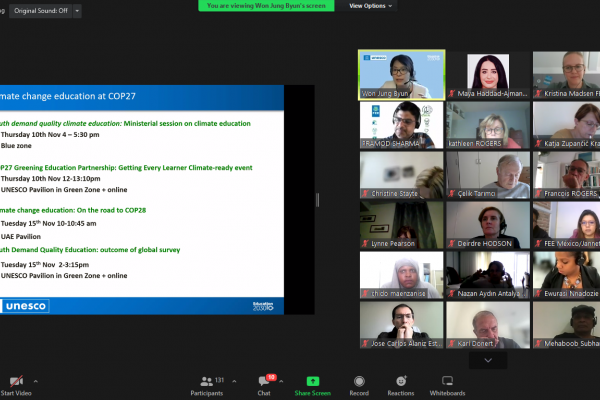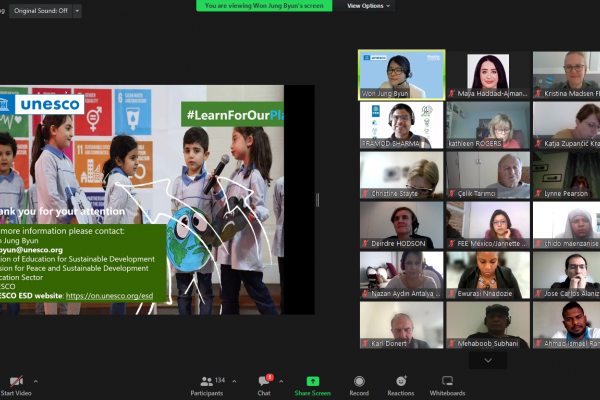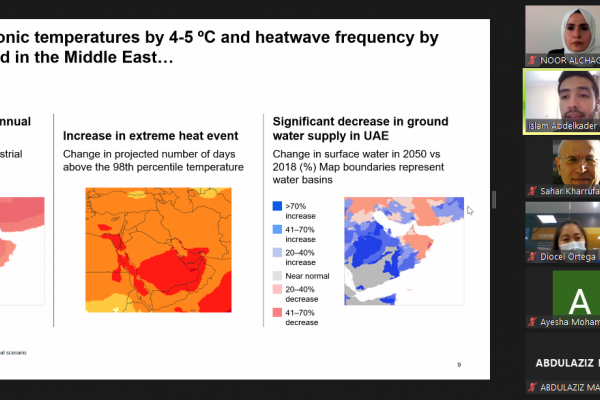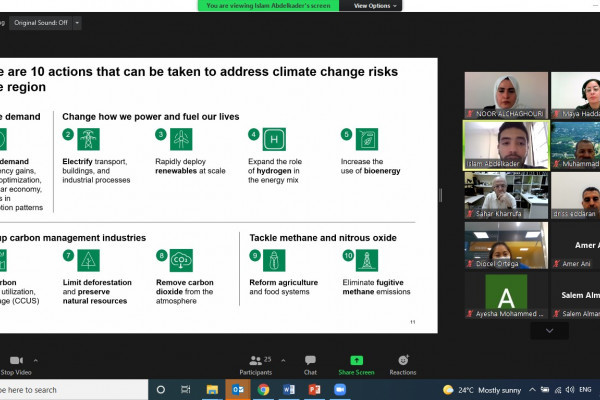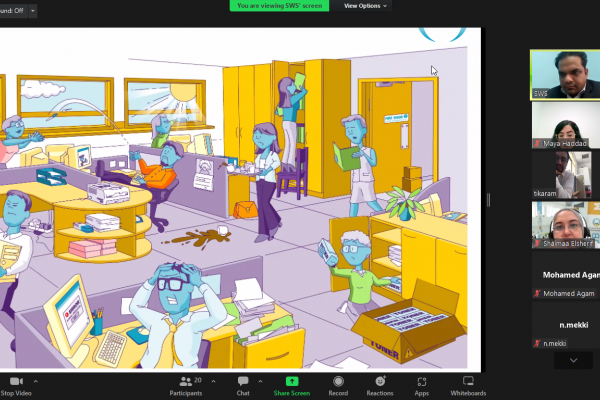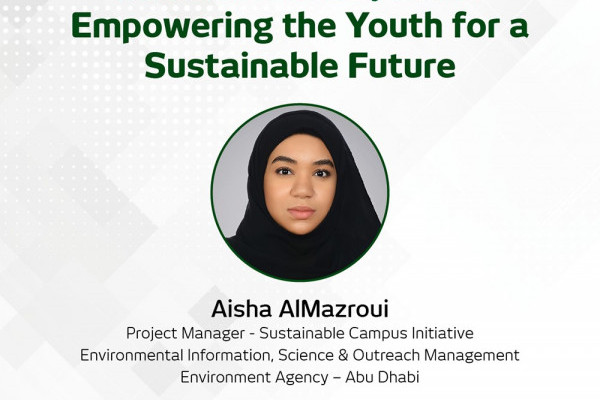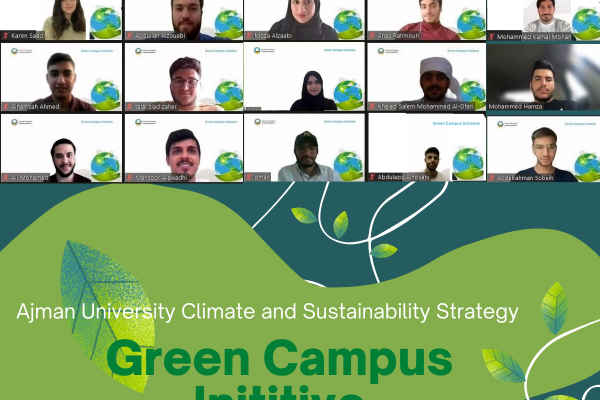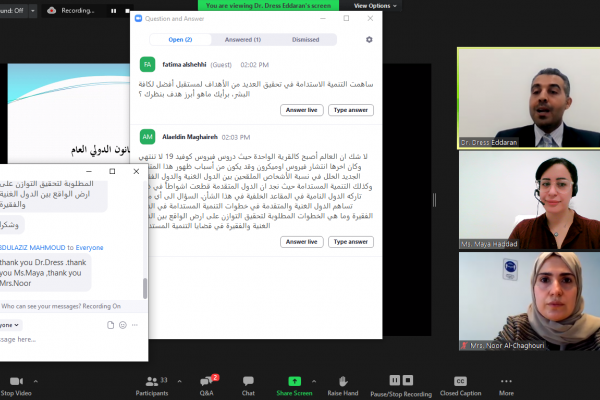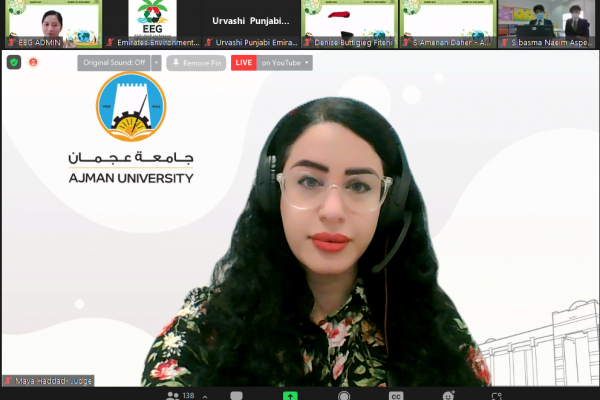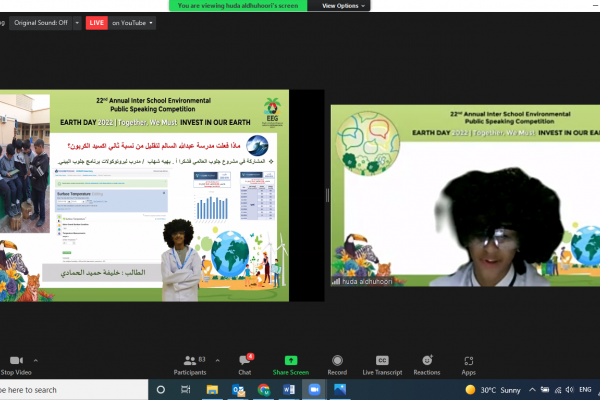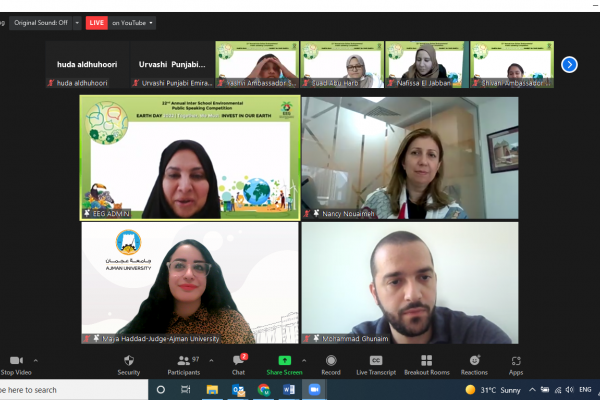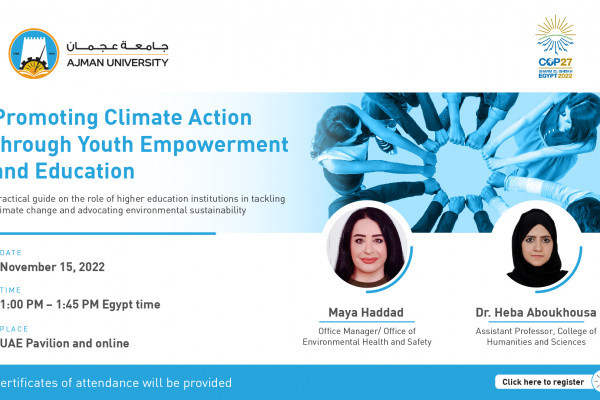Training Courses
_(3).png)
Empowering the Community for a Sustainable Future: Climate Change Training Courses
In a world facing the escalating threat of climate change, Ajman University stands as a beacon of knowledge and action, offering comprehensive free of charge resources for training courses to equip individuals and communities with the skills and understanding necessary to address this pressing global challenge. Our diverse range of programs caters to a wide audience, from students and educators to professionals and concerned citizens, empowering each participant to become an agent of positive change.
We offer a series of training courses in collaboration with Coursera, the United Nations Climate Change Learning Partnership and the UN Institute for Training and Research. The courses cover a wide range of topics such as Climate Change, Sustainable Finance, Green and Circular Economy, Gender Equality and Human Rights in Climate Action, Renewable Energy, Preventing E-waste, Food Waste Prevention, Human Health and Climate Change, UN Sustainable Development Goals and much more.
Tailored Programs for Diverse Needs
The training courses are tailored to meet the needs of a diverse range of participants:
- Students: Enhance your academic knowledge and prepare for careers in climate change-related fields.
- Educators: Equip yourself with the skills to effectively teach climate change concepts to students of all ages
- Professionals: Gain the expertise to integrate climate change considerations into your professional practice.
- Concerned Citizens: Become an informed advocate for climate change action within your community.
Available Courses: Equipping You with Climate Change Expertise
Ajman University's climate change training courses are designed to provide in-depth knowledge and practical skills in various aspects of climate change. The basic courses are mandatory for all AU Community members. The list of mandatory and optional courses can be found below:
Understanding Climate Change Risks and Impacts: Gain a comprehensive understanding of the scientific basis of climate change, its potential impacts on various sectors, and the associated risks faced by communities.Courses list
Mandatory
Climate Change: From Learning to Action
Optional
- Integrating Climate Risk Information into NAPs
- An Introduction to Climate Change and Human Rights
- Climate Change, Peace and Security: Understanding Climate-Related Security Risks Through an Integrated Lens
- Children and Climate Change
- How to Report Emissions under the Convention on Long-range Transboundary Air Pollution
- Convention on Long-range Transboundary Air Pollution
Courses List
Mandatory
Optional
- Climate Change International Legal Regime
- Gender Equality and Human Rights in Climate Action and Renewable Energy
- Green Fiscal Policy
- Carbon Taxation
- Introduction to Sustainable Finance Taxonomies
Adaptation Strategies: Explore effective strategies to adapt to the impacts of climate change by enhancing resilience and building sustainable practices.
Courses List
- Making the Right Choices - Prioritizing Adaptation Options
- Financing Local Adaptation to Climate Change: an Introduction to Performance-Based Climate Resilience Grants
- Mastering National Adaptation Plans: from Start to Finish
- Building Climate Resilience through Ecosystem-based Adaptation Planning
- International Climate Change Negotiations: Leveraging LoCAL Experience in Support of Climate Change Negotiations
- Integrating Climate Risk Information into NAPs
Courses List
- Natural Disaster and Climate Change Risk Assessment Specialization
- Natural Disaster Risk in Infrastructure Projects
- Qualitative and Quantitative Analysis of Disaster Risk
- Decision-Making and Governance of Natural Disaster Risk
Courses List
Mandatory
Optional
- Understanding Sustainability - Junior School Groups
- Understanding Sustainability - Senior School Groups
- Workshop on Sustainable Nudges
- SDG 6: Clean Water and Sanitation Workshop
- A Healthy Planet, a Healthy You: The Connection Between Sustainability and Healthcare Awareness Session
- The Climate Dictionary Workshop
Sustainable Development: Learn how to contribute to the 17 UN Sustainable Development Goals and how to integrate them into your impact.
Courses List
- A Participant Guide of the UN Climate Change Process
- Introduction to Sustainable Development in Practice
- Advancing Sustainable Development in Practice
- The National Implementation of the Paris Agreement
- Plastic Waste and the Basel Convention
- Indicators for an inclusive green economy: Introductory course
- Indicators for an inclusive green economy: Advanced course
- Sustainable Consumption and Production in Africa
If your subject of interest is not listed above, you can request specialized training here.
Empowering a Generation of Climate Champions
These climate change training courses are not just about imparting knowledge; they are about empowering individuals to become active participants in the fight against climate change.
Join us in our mission to create a sustainable future for all.
Enroll in these climate change training courses today and become a catalyst for positive change.
Co-operative Planning
Ongoing Projects
Participating in the UAE National Adaptation Plan Consultation Process (2022-Present)
Project Collaborators: Ministry of Climate Change and Environment (UAE) and The Global Green Growth Institute (GGGI)
Ajman University has firmly positioned itself as a vital contributor to the United Arab Emirates' national sustainability agenda. The university is committed not only to participating in initiatives but to actively shaping them, ensuring a resilient and sustainable future for the next generation. A core component of this mission involves providing direct academic and research-based support to the government's strategic planning efforts, particularly in the complex field of climate adaptation.
In alignment with the UAE's strategic Net Zero 2050 initiative and the Paris Agreement, Ajman University serves as a crucial knowledge partner. Since 2022, the university's representatives have been actively engaged in a series of academic consultations, workshops, and high-level discussions focused on the UAE's climate adaptation framework. This is not merely passive attendance; it is an active process of informing and supporting the government by translating cutting-edge research, empirical data, and academic expertise into actionable policy recommendations. The university's role is to help bridge the gap between theoretical knowledge and practical implementation, ensuring that the nation's plans are robust, evidence-based, and effective.
The UAE has emerged as a regional leader in this arena, being one of the first MENA nations to support the Paris Agreement. Its leadership will be on full display as it hosts the UNFCCC COP28 in November-December 2023, a pivotal event featuring the first Global Stocktake to assess collective progress under the agreement.
Central to the UAE's strategy is its National Adaptation Plan (NAP). The NAP is designed to be the nation's next significant step in proving its leadership against climate change, integrating climate resilience across the Federal Government and identifying vulnerabilities across all seven emirates. It is precisely within the development of this critical plan that Ajman University's contributions are most impactful. By participating in the consultations for the NAP, the university provides essential insights that help the government identify sector-specific risks—from water security and agriculture to public health and infrastructure—and develop targeted adaptation measures. This collaborative partnership ensures that the UAE's climate adaptation planning is not only comprehensive but also grounded in the latest scientific and academic understanding, ultimately creating a more resilient nation.
Initiation of the AE03 UAE National Climate Adaptation Program
Deliverable of Consultations: draft version of UAE NAP
Participating in the Greening Education Partnership (2022-Present)
Project Collaborators: UNESCO and Ministry of Education (UAE)
Ajman University's commitment to sustainability extends beyond campus borders, positioning it as a key actor in a powerful tripartite collaboration between higher education, government, and international non-governmental organizations (NGOs). Its participation in the Greening Education Partnership, launched in 2022, exemplifies this strategic approach. This initiative is not undertaken in isolation but is a direct collaboration with UNESCO as the guiding international NGO and the UAE Ministry of Education as the pivotal government partner.
This partnership model is fundamental to its success. The university acts as a crucial conduit and implementer, translating high-level international frameworks, established by UNESCO, into concrete national action, aligned with the strategic priorities of the UAE Ministry of Education.
- Informing Government Strategy through NGO Frameworks: UNESCO provides the global evidence base, pedagogical tools, and holistic framework of Education for Sustainable Development (ESD). Ajman University, by integrating these UNESCO-led principles, directly informs and supports the Ministry of Education in fulfilling its national and international commitments. The university becomes a living laboratory for best practices, demonstrating effective methods for "greening" curricula, campuses, and teacher training. The insights gained from this implementation provide valuable, real-world data back to the Ministry, helping to refine national education policies and ensure they are practical and impactful.
- Executing a National and Global Mandate: The partnership is a direct response to the UN Secretary-General s call at the Transforming Education Summit for a fundamental shift in education to address the climate crisis. By aligning with both the Ministry of Education and UNESCO, Ajman University ensures that its efforts are not peripheral but central to the UAE's educational and sustainability goals. This collaboration ensures that the UAE's progress in greening education contributes meaningfully to a global movement, with the university serving as a model of excellence within the country.
- Empowering Learners for a Green Economy: The ultimate aim of this collaboration is to create a seamless pipeline from international expertise to national strategy to classroom implementation. By drawing on ESD's holistic approach, the partnership ensures that learners at Ajman University and beyond are equipped with the specific knowledge, skills, values, and attitudes required for the transition to digital and green economies. This directly supports the UAE's strategic economic diversification plans, informing the development of a future-ready workforce that can drive inclusive and sustainable development.
In essence, Ajman University's role in the Greening Education Partnership is a testament to the power of collaborative governance. By working hand-in-hand with a global NGO (UNESCO) and the federal government (UAE Ministry of Education), the university ensures that its educational mission is directly contributing to a coordinated, nationwide effort to build climate resilience and a sustainable future from the ground up.
Project Timeline
Consultation 6
Consultation 6
Consultation 6
Consultation 6
Participating in the Culture Based Climate Action (CBCA) UAE baseline study Consultation Process (2025-Present)
Project Collaborators: Ministry of Culture (UAE) and British Council
At Ajman University, our commitment to a sustainable future is woven into the fabric of our institutional identity. We are not just educators; we are active contributors to the national and global dialogue on climate resilience. A prime example of this commitment is our pivotal role in shaping the UAE's pioneering Culture-Based Climate Action (CBCA) baseline study, a landmark initiative that positions culture as a core pillar of environmental strategy.
Bridging Heritage and Innovation: The UAE's CBCA Initiative
The CBCA study, a strategic partnership between the British Council and the UAE Ministry of Culture, represents a paradigm shift in climate planning. It moves beyond purely technological solutions to explore how the UAE's intangible cultural heritage, traditional knowledge, and creative industries can build a more resilient and adaptable society. The project aims to create a national framework to institutionalize this approach across all levels of government and civil society.
The Conduit of Expertise: Leadership in the UAE Universities Climate Network (UCN)
Ajman University's deep involvement in this national project was channeled through our leadership role in the UAE Universities Climate Network (UUCN). As a leading voice in this consortium, we served as the crucial academic link, mobilizing cross-disciplinary expertise and ensuring the study was grounded in rigorous research. The UUCN provided the structured platform to gather insights from fields including environmental science, urban planning, sociology, and the humanities, creating a holistic knowledge base for the policy.
A Seat at the Table: Co-Creating Policy at the Reflection Session
In July 2025, our experts were invited to a critical "Reflection Session," a high-level consultation hosted by the Ministry of Culture and the British Council. This was not a passive briefing but an active, collaborative workshop designed to pressure-test the study's findings and co-create its final recommendations.
Our contribution was multi-faceted:
-
Providing Ground-Truthing: During breakout sessions, AU representatives provided critical "ground-truthing" on the study's preliminary findings. We offered context on how proposed policies might manifest in the unique social and environmental landscape of the Emirate of Ajman and the wider northern Emirates.
-
Refining Actionable Recommendations: We engaged in detailed brainstorming on how to translate cultural insights into tangible actions. For instance, discussions included how traditional aflaj (water channel) management systems could inform modern water conservation policy, or how indigenous architectural techniques could inspire passive cooling solutions in urban design.
-
Defining Success Metrics: AU played a key role in the interactive session defining "what success looks like." We advocated for measurable, long-term indicators that go beyond carbon metrics to include community engagement, preservation of intangible heritage, and the growth of a green cultural economy.
From Consultation to Implementation: The Road Ahead
The insights from this consultation are directly feeding into a major national and international rollout. The final report will be launched in September 2025, followed by presentations at global forums like Mondiacult 2025 and COP30.
Crucially, Ajman University is now positioned as a natural partner for the next phase: the "Culture × Climate Roadshow" in December 2025. Given our deep community ties and regional expertise, we are poised to host workshops and dialogues in the northern Emirates, ensuring the study's findings are brought directly to the communities they are designed to serve.
Informing Governance, Empowering Communities
This entire engagement is a testament to Ajman University's strategic model of operation. We function as a essential knowledge partner for the UAE government, ensuring that ambitious national strategies like the CBCA are informed by academic rigor, culturally attuned, and practically implementable. By leading the UUCN's contribution to this process, we have helped ensure that the nation's journey toward Net Zero 2050 is not only technologically advanced but also culturally profound and socially inclusive.
Culture Based Climate Action (CBCA) UAE - A baseline study
Rooted in Resilience
Working title: How Culture Shapes Climate Resilience in the UAE?
Baseline Study Briefing Note | July 2025
Resources

Climate Risk Resources
1. The World Bank Climate and Disaster Risk Screening Tools: The World Bank's Climate and Disaster Risk Screening Tools are a set of free online tools that help users assess and manage climate and disaster risks. The tools cover a wide range of topics, including climate change, natural disasters, and public health.
2. The Climate Risk Tool Landscape: The Climate Risk Tool Landscape is a report by the United Nations Environment Programme Finance Initiative (UNEP FI) that provides an overview of the climate risk tools and providers available to financial institutions. The report includes information on the different types of tools available, their features, and their pricing.
3. Climate Risk Dashboard: The Climate Risk Dashboard is an online tool that provides an overview of the climate risks faced by different countries. The tool is based on data from the World Bank and other sources.
4. Climate risk management and TCFD: The Technical Assistance Facility of the Green for Growth Fund (GGF TAF) and UNEP FI are joining forces to provide an in-depth online training focused on Climate Risk Management and TCFD for the partner financial institutions of the Green for Growth Fund (GGF). This comprehensive training program serves as a continuation of the series of awareness-raising workshops conducted in 2022 and 2023 for GGF partner institutions and is tailored to the regions served by GGF.
5. National Communications: National Communications are country-specific reports to the United Nations Framework Convention on Climate Change (UNFCCC) that often contain information and research on a country's key sectors that may face risks from climate change. The reports can be a valuable source of information on climate risks and adaptation strategies.
Climate Mitigation Resources
1. The Intergovernmental Panel on Climate Change (IPCC): The IPCC is the leading international body for the assessment of climate change. It provides comprehensive scientific assessments of climate change, its impacts, and potential future risks, serving as a trusted source of information for decision-makers worldwide.
2. United Nations Framework Convention on Climate Change (UNFCCC): The UNFCCC is an international treaty adopted in 1992 to address climate change. The convention aims to stabilize greenhouse gas concentrations in the atmosphere to prevent dangerous human interference with the climate system.
Climate Adaptation Resources
1. Global Adaptation Network: The Global Adaptation Network (GAN) is helping the world to build resilience towards climate change by spreading adaptation knowledge. A growing number of organizations and research institutes are hastily assessing how humanity can best prepare for increasing climatic extremes. The Global Adaptation Network acts as an umbrella system across the world, linking these various organizations, many of which bear a focus on the regions most vulnerable to the impacts of global warming. When cutting-edge solutions are developed, they must be shared with those who need them.
2. World Adaptation Science Program: WASP’s core vision is to ensure that climate adaptation knowledge gaps are filled to inform evidence-based policies, solutions, and actions for successful adaptation to new climate conditions. Our priority is addressing the knowledge needs in vulnerable developing countries and providing policy-relevant science for decision-makers.
Impact Reduction and Early Warning Resources
1. Ecosystem-based Disaster Risk Reduction (Eco-DRR): Nature-based Solutions is an umbrella term that includes several types of ecosystem-based approaches to deal with societal challenges such as disasters and climate risks. This includes ‘Ecosystem-based Disaster Risk Reduction’ (Eco-DRR), which is the sustainable management, conservation, and restoration of ecosystems to reduce disaster risk, with the aim of achieving sustainable and resilient development. Well-managed ecosystems, such as wetlands, forests, and coastal systems, act as natural infrastructure, reducing physical exposure to many hazards and increasing the socio-economic resilience of people and communities by sustaining local livelihoods and providing essential natural resources such as food, water and building materials.
2. Beating the Heat: A Sustainable Cooling Handbook for Cities: This handbook was launched on November 3rd, 2021 at COP26 by the Cool Coalition, UNEP, RMI, Global Covenant of Mayors for Climate & Energy (GCoM), Mission Innovation, and Clean Cooling Collaborative. The new guide offers planners an encyclopedia of proven options to help cool cities. The guide’s 80 supporting case studies and examples demonstrate the effectiveness of the strategies outlined and can help cities find an approach best suited to their unique contexts.
Poster Resources
Campaigns






.png)
_(4).png)
_(5).png)
